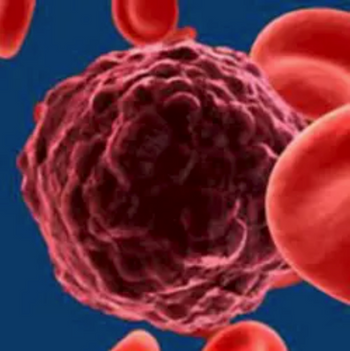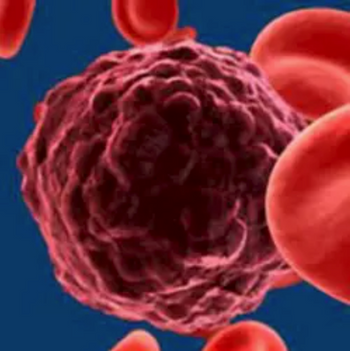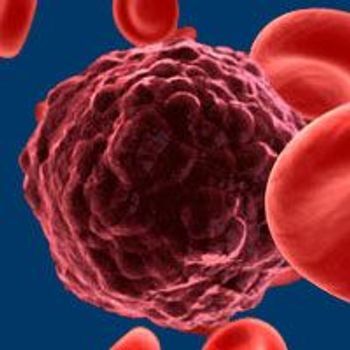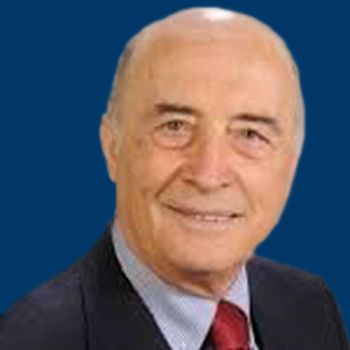
Daratumumab maintenance therapy yielded an increase in response following autologous stem cell transplant plus induction and consolidation therapy with bortezomib, thalidomide, and dexamethasone in patients with newly diagnosed multiple myeloma.

Your AI-Trained Oncology Knowledge Connection!


Daratumumab maintenance therapy yielded an increase in response following autologous stem cell transplant plus induction and consolidation therapy with bortezomib, thalidomide, and dexamethasone in patients with newly diagnosed multiple myeloma.

Paolo Ghia, MD, PhD, discusses results seen with the combination of ibrutinib and venetoclax as a first-line treatment for patients with chronic lymphocytic leukemia.

In the first few years of their availability in the United States, axicabtagene ciloleucel and tisagenlecleucel have been used to mostly treat patients with diffuse large b-cell lymphoma in the outpatient setting who are receiving the CAR T-cell therapies prior to failure on 2 prior lines of therapy.

The next-generation, selective BTK inhibitor acalabrutinib demonstrated noninferiority to ibrutinib in terms of progression-free survival in patients with previously treated chronic lymphocytic leukemia in the phase 3 ELEVATE-RR trial.

Zanubrutinib continued to induce deep responses with acceptable tolerability in patients with relapsed/refractory chronic lymphocytic leukemia, including those with high-risk cytogenetics.

Axicabtagene ciloleucel demonstrated significant clinical activity with durable responses in patients with relapsed/refractory indolent non-Hodgkin lymphoma who experienced disease progression within 24 months from initiation of the first anti-CD20–containing chemotherapy, which is a high-risk clinical feature.

The combination of lenalidomide and rituximab continued to improve progression-free survival with durable outcomes and a manageable safety profile in patients with indolent B-cell non-Hodgkin lymphomas and mantle cell lymphomas.

Peter Hillmen, MD, PhD, discusses results reported with acalabrutinib in patients with chronic lymphocytic leukemia, as demonstrated in a phase 3 trial.

Eunice Wang, MD, discusses the potential impact of menin inhibitors on the treatment of acute myeloid leukemia.

Although cardiovascular health of patients with myeloproliferative neoplasms was relatively good, an estimated 11% to 22% of patients were not prescribed appropriate medications for management of comorbidities associated with thrombotic risk.

Bijal Shah, MD, MS, discusses the results seen with brexucabtagne autoleucel in patients with relapsed/refractory B-cell acute lymphoblastic leukemia, as demonstrated in the phase 2 ZUMA-3 trial.

Time-to-next treatment and overall survival were improved in a real-world study evaluating patients who received rituximab maintenance after first-line treatment with bendamustine and rituximab or R-CHOP in patients with mantle cell lymphoma.

The fixed-dose combination of the BCL-2 inhibitor venetoclax and the humanized anti-CD20 monoclonal antibody obinutuzumab continued to confer a progression-free survival advantage over chlorambucil plus obinutuzumab for patients with previously untreated chronic lymphocytic leukemia.

Othman Al-Sawaf, MD, discusses the efficacy of venetoclax plus obinutuzumab in patients with chronic lymphocytic leukemia, as demonstrated in the phase 3 CLL14 trial.

Ruben A. Mesa, MD, discusses results seen with momelotinib in patients with transfusion-independent myelofibrosis, as demonstrated in the phase 3 SIMPLIFY-1 and SIMPLIFY-2 trials.

Intensified induction therapy with daratumumab in addition to cyclophosphamide, bortezomib, lenalidomide, and dexamethasone and bortezomib-augmented autologous stem cell transplant yielded robust responses in patients with ultra¬ high–risk multiple myeloma or primary plasma cell leukemia

Patients with relapsed/refractory multiple myeloma who were treated with ciltacabtagene autoleucel experienced improved outcomes over those who received a conventional therapy

Ciltacabtagene autoleucel demonstrated efficacious responses and significant improvements in survival over standard of care in triple class–relapsed/refractory multiple myeloma.

Zanubrutinib induced superior response and progression-free survival rates, as well as lower rates of atrial fibrillation/flutter than ibrutinib in patients with relapsed/refractory chronic lymphocytic leukemia/small lymphocytic lymphoma.

A 60 mg dose of zandelisib administered on an intermittent schedule from cycle 1 plus 80 mg of zanubrutinib twice daily yielded promising response rates in patients with relapsed/refractory B-cell malignancies and chronic lymphocytic leukemia.

Bijal Shah, MD, MS, discusses the key findings of the ZUMA-3 trial, as well as key safety information regarding brexucabtagene autoleucel as a treatment for patients with heavily pretreated patients with relapsed/refractory B-cell ALL.

The incidence of grade ≥2 cytokine release syndrome was lower in patients with relapsed or refractory multiple myeloma who received anakinra prophylaxis with orvacabtagene autoleucel, a B-cell maturation antigen-targeted CAR T-cell therapy.

Ruben A. Mesa, MD, discusses the importance of achieving transfusion independence with momelotinib in myelofibrosis.

A panel of hematologic experts came together for a live Q/A session to discuss promising research related to common clinical complications of hematopoietic stem cell transplantation.

CPX-351 continued to showcase an overall survival benefit versus conventional 7+3 chemotherapy in patients with newly diagnosed high-risk/secondary acute myeloid leukemia.

The triplet therapy of isatuximab-irfc, carfilzomib, and dexamethasone showed a statistically significant improvement in PFS versus carfilzomib and dexamethasone alone in patients with relapsed/refractory multiple myeloma.

Results from a survey of patients in the United Kingdom showed patients with sickle cell disease diagnosed with COVID-19 and who had mild symptoms were more likely to die or require mechanical ventilation than those with more severe symptoms of COVID-19.

Endotheliopathy represents a marker of progression to critical illness in patients with COVID-19 infection and soluble thrombomodulin segregates with mortality.

More patients with low-risk polycythemia vera treated with ropeginterferon alfa-2b were able to maintain hematocrit levels at or below 45% compared with those who received monthly phlebotomy alone.

Meletios A. Dimopoulos, MD, discusses safety results from the randomized phase 3 ASPEN trial of zanubrutinib (Brukinsa) in patients with Waldenström macroglobulinemia.